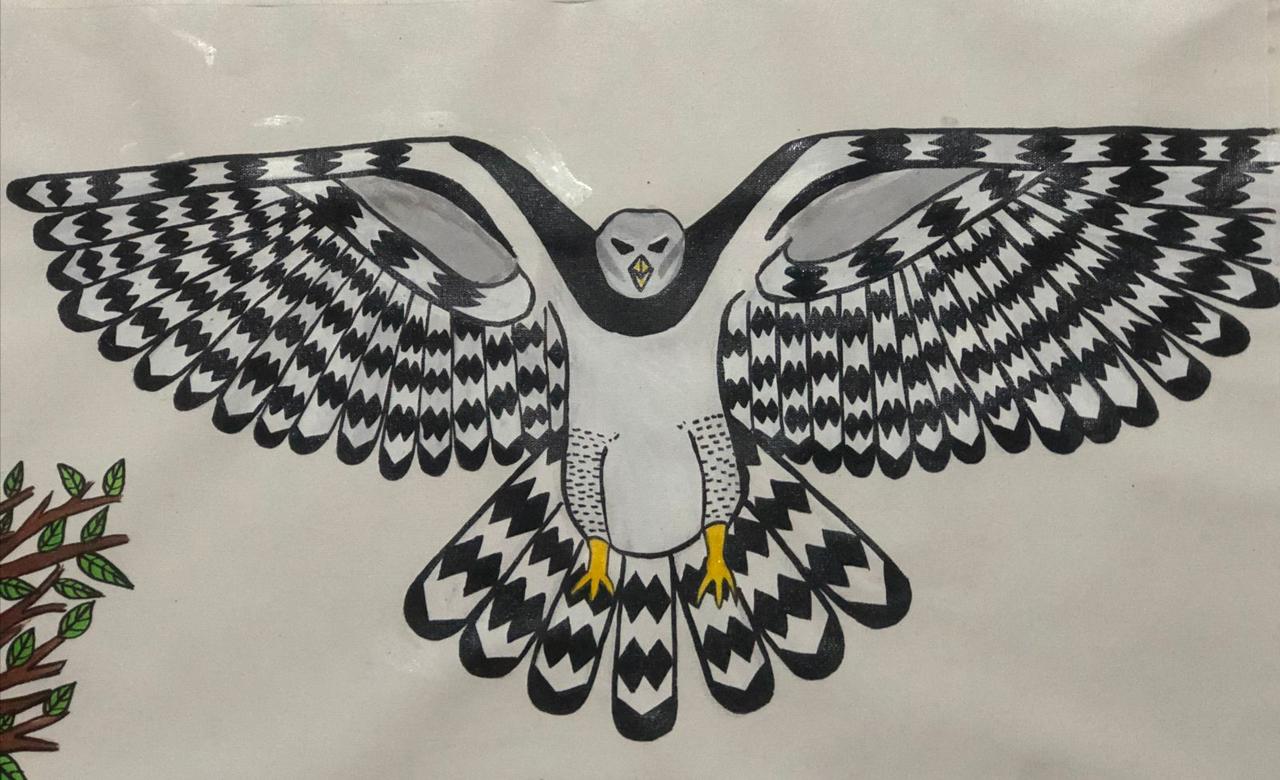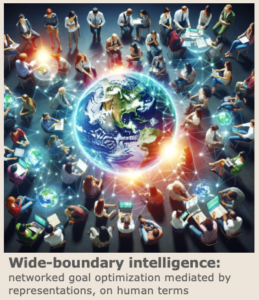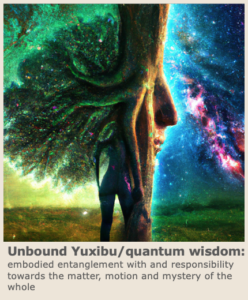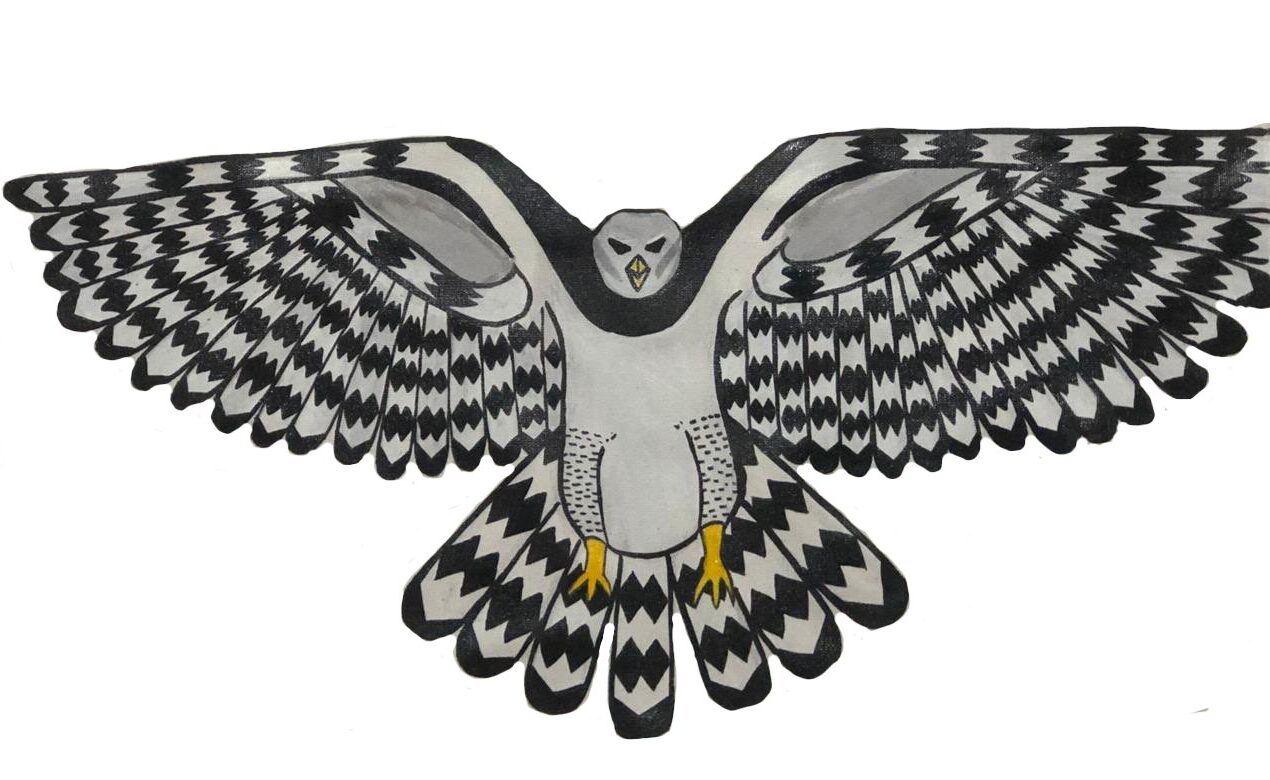
Relational Sciences and Technologies
In our physical campus, in the Amazon, and also wherever we go, since the forest comes with us, the forest is our teacher, our classroom, our library, our research lab, our experimental fields and a pharmacy where only 1% of the medicines are known by Western researchers. Our research facilities are world-class and our research methodologies grounded on both intellectual and relational rigour. Research excellence and integrity are core pillars of our university.
Indigenous relational sciences and technologies of reverence, respect, reciprocity and responsibility towards the land have been developed since time immemorial by communal relations between human and non-human beings. Indigenous relational sciences and technologies provide a powerful perspective, urging us to transcend the narrow-boundary intelligence [1] of modernity focused on the maximization of profit and instead activate our capacity to access the wide-boundary metabolic and embodied quantum wisdom of the Earth itself, which we call Yuxibu, in our language Hãtxa Kuĩ.
We recognize the usefulness of Western sciences and technologies, which Western universities have developed to an advanced state. We acknowledge that it is extremely unfortunate that Western sciences and technologies have been placed mostly in service of colonialism and the expansion of harmful, irresponsible and unsustainable socio-economic systems that are now global in scope. This stems from a fundamental erroneous assumption that we are separate from the land and from each other, which denies our interdependence and our responsibilities towards the whole. We also recognize that Western culture has traditionally ignored, neglected, underestimated and attempted to erase the power and significance of Indigenous relational sciences and technologies, which we have developed to advanced states.
We are now collectively facing mass extinction in slow-motion and the colonial ways of organizing, thinking, feeling, relating, hoping, imagining and being that have got us into this situation cannot get us out of it. The future depends much less on the hopeful and positive images that we want to project ahead than on our capacity to repair relations, to build relationships differently and to coordinate effectively, right now, in the present.
In modern societies, hope is held hostage by idealized images of the future. However, we need to liberate hope from this captivity so that it resides in the present: in the faith that we can heal our fractured relationship with the Earth, with other species, among ourselves, and within ourselves. The future is the outcome of the relationships we weave in the present. To make the future different, we must weave relationships differently in the present, rather than focusing on idealizations of the future that perpetuate the relational fractures of the present.
Chief Ninawa Inu Huni Kui
We will also need to combine Western and Indigenous sciences and technologies if humanity is to have any future on this planet. Indigenous relational sciences are a profound source of wisdom that can steer the application of Western sciences and technologies away from narrow-boundary towards wide-boundary intelligence and unbound wisdom in service of the viability of life on the planet [1].



Before we can do that, Western disciplines of science and technology will need to lose their ingrained arrogance, ethnocentrism and universalism, and confront the harms they have caused and/or contributed to. Once that happens, Indigenous sciences and technologies can be integrated with Western sciences and technologies in a trans-systemic way to coordinate efforts towards regeneration and the expansion and embrace of our social-ecological intergenerational responsibilities.
We encourage you to check collective experiments in the discipline areas of respect, reverence, reciprocity and responsibility showcased by each of our 5 inter- and trans-disciplinary Faculties.
See also:
Free PDF of the book “Towards Braiding” by Elwood Jimmy and Vanessa Andreotti; text “Towards Accountable Relations and Relationship Building With Indigenous Peoples” by Cash Ahenakew.
[1] We would like to acknowledge that the articulation of the distinctions between narrow/wide-boundary intelligence and wisdom was partly inspired by the exchange between Daniel Schmachtenberger and Nate Hagens in the pocast “AI and the superorganism” as well as the work of the GTDF collective on depth education, which, within this vocabulary, focuses on the educational process of moving from intelligence to wisdom.
